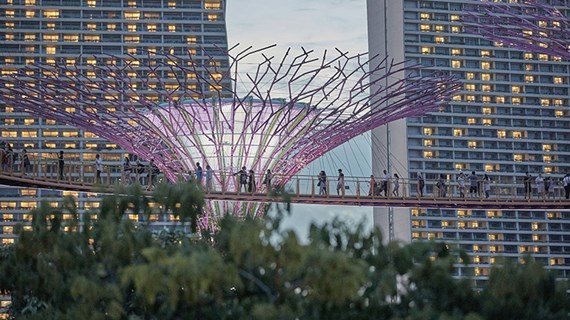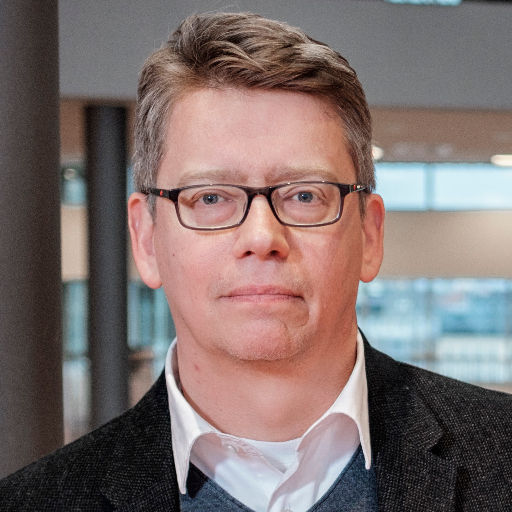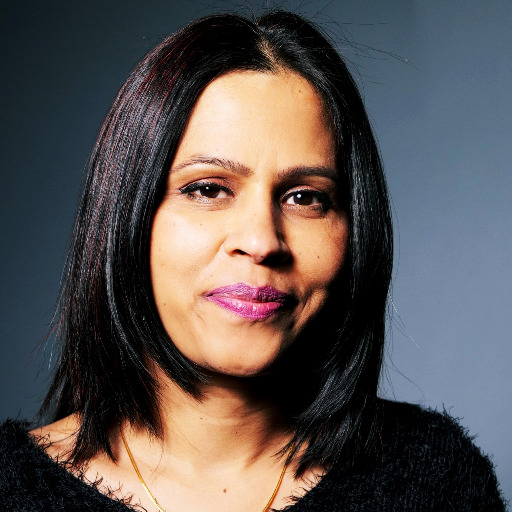We use cookies on this website. Cookies help us deliver the best experience on our website. Read about cookies.
-
- Education
- Education
- Programmes and courses
- Applications and admissions
- Tuition fees
- Scholarships
- Exchange studies at Malmö University
- Study Guidance
-
- After admission
- After admission
- Moving to Malmö
- Pre-orientation
- Arrival guide
-
- About studies at Malmö University
- About studies at Malmö University
- Why choose Malmö University
- Understanding university studies
- Connect with our students
On the page -
- Research
- Research
-
- Doctoral studies
- Doctoral studies
- Doctoral courses
-
- Doctoral schools
- Doctoral schools
- Doctoral school: Education, Learning and Globalisation
- Doctoral school: The National Research School for Professionals in Social Services
- Doctoral school: Learning in Multicultural Societal Contexts
- Doctoral school: ComBine
- Doctoral school: Swedish National Graduate School in Science and Technology Education Research
- Doctoral school: Relevancing Mathematics and Science Education (RelMaS)
- Doctoral school: Sustainable Movement Education
- Doctoral school: Finding ways in a time of great future challenges (FinnFram)
- Doctoral school: Pedagogy and Vocational Skills
- Doctoral school: Culturally Empowering Education through Language and Literature
- Research subjects
-
- Research centres
- Research centres
- Biofilms Research Centre for Biointerfaces
- Citizen Health
- Imagining and Co-Creating Futures
- Institute for Urban Research
- Malmö Institute for Migration Studies
- Literacy and Inclusive Teaching
- Centre for Work Life Studies
- Sustainable Digitalisation Research Centre
- Centre for Sexology and Sexuality Studies
-
- Research publications
- Research publications
- Search publications
- Malmö University Press
- Research events
- Participate in a research study
- Coffee Break Quiz
On the page -
- Collaboration and Innovation
- Collaboration and Innovation
- Innovation
- Collaboration with students
-
- Collaborate with researchers
- Collaborate with researchers
- Labs and facilities
- Culture collaboration
- Support Malmö University
- Alumni & Friends
On the page -
- About us
- About us
-
- Faculties and departments
- Faculties and departments
-
- Faculty of Culture and Society
- Faculty of Culture and Society
- Department of Urban Studies
- Department of Global Political Studies
- School of Arts and Communication
-
- Faculty of Education and Society
- Faculty of Education and Society
- Department of Childhood, Education and Society
- Department of Sports Sciences
- Department of Natural Science, Mathematics and Society
- Department of School Development and Leadership
- Department of Culture, Languages and Media
- Department of Society, Culture and Identity
-
- Faculty of Technology and Society
- Faculty of Technology and Society
- Department of Computer Science and Media Technology
- Department of Materials Science and Applied Mathematics
-
- Faculty of Odontology
- Faculty of Odontology
- Master's programmes in Dental Science
- University Dental Clinic
- Management and decision-making paths
-
- Vision, objectives and strategy 2025
- Vision, objectives and strategy 2025
- Global engagement
- Sustainability
- Widened recruitment and participation
- Quality assurance work at the University
-
- Malmö Academic Choir and Orchestra
- Malmö Academic Choir and Orchestra
- Student work – video pieces
-
- Annual Academic Celebration
- Annual Academic Celebration
- Academic traditions
- Meet our new professors
- The University in a troubled world
On the page
Internet of Things and People
and People
Internet of Things and People (IoTaP) is a research centre that studies how people can get the most out of the Internet of Things. The work involves computer scientists, interaction designers, professionals and users. Through applied research, IoTaP addresses a range of current challenges in society within areas such as energy, transportation, health, learning and home automation.
News
New name, new direction: Sustainable digitalisation
New name, new direction: Sustainable digitalisation
The Internet of Things and People Research Centre has become the Sustainable Digitalisation Research Centre. We continue to develop knowledge and solutions for sustainable digitalisation and innovation.

Our research
The evolution of IoT has largely been driven by developments in technology. Computing power and connectivity are becoming smaller, cheaper and more energy efficient, making it possible to connect and augment an increasing range of objects. How people can make meaningful use of these new technical possibilities is, however, still an open question. In order to develop successful products and services, the perspective of the users must be integrated in the studies on the Internet of Things.
IoTaP's mission is to:
- address important societal challenges through IoT research
- produce new knowledge that when applied will provide value for IoT users
- contribute to innovation through co-production with industrial and societal organisations
- publish research results regularly in well-reputed scientific journals and present the results at leading scientific conferences
- inform organisations and a broad audience about research results through seminars, popular science articles, and media appearances
- provide an attractive working environment
Research projects
A list of completed projects can be found on our project archive page.
Research projects
Research Publications
A broader list of publications can also be found on IoTaP's Google Scholar page.
-
2025 | Conference paper
Lightweight Low-Light Image Enhancement Model Training and Design Considerations
Hajira Saleem, Reza Malekian, Hussan Munir
-
2025 | Conference paper
Teaching Agent-Based Modeling for Simulating Social Systems – A Research-Based Learning Approach
Fabian Lorig, Michael Belfrage, Emil Johansson
-
2025 | Conference paper
A Flexible IMU-Based Unit for Validation Studies: A Step Counting Application
Alessandra Angelucci, Lorenzo Barbieri, Sara Caramaschi, Clarysse A. Sarmiento, Virginia Sekules, Andrea Aliverti
-
2025 | Conference paper
Objective Characterization of Timed Up and Go Test via Sensorized Mats
Hedda Eriksson, Malin Ramkull, Dario Salvi, Carl Magnus Olsson, Dario Ghezzi, Davide La Rosa, Filippo Palumbo
-
2025 | Conference paper
Multisensor Setup for Functional Capacity Testing: The Malisa Dataset
Dario Salvi, Carl Magnus Olsson, Hicham Lamrani Laghrib, Kévin Merle, Noa Pothier, Selin Yildirim, Davide La Rosa, Filippo Palumbo
-
2025 | Conference paper
Enhancing In Vitro Fertilization with Environment Optimization Utilizing Artificial Intelligence (EIVF-AI)
Reza Khoshkangini, Elisabeth Mangrio, Magnus Johnsson
-
2025 | Conference paper
Non-Invasive People Counting in Smart Buildings: Employing Machine Learning with Binary PIR Sensors
Azad Shokrollahi, Fredrik Karlsson, Reza Malekian, Jan A. Persson, Arezoo Sarkheyli-Hägele
-
2025 | Conference paper
The Role of Ethics in Smart Homes – A Workshop-Based Approach
Sally Bagheri, Andreas Jacobsson
-
2025 | Article in journal
Parallel fault diagnosis using hierarchical fuzzy Petri net by reversible and dynamic decomposition mechanism
Yinhong Xiang, Kaiqing Zhou, Arezoo Sarkheyli-Hägele, Yusliza Yusoff, Diwen Kang, Azlan Mohd Zain
-
2025 | Licentiate thesis, comprehensive summary
Agent-based Social Simulation & Policy-Modelling: Facilitating Realistic and Credible Decision-making Support
Michael Belfrage
The IoTaP lab
The IoTaP lab is a creative environment for research and development of IoT-based infrastructure and user interfaces. The lab is open to researchers and students working in IoTaP-related projects, and to existing and future IoTaP partners, both commercial and academic.
Location: Room C0526, Niagara, Nordenskiöldsgatan 1
Contact: Lab coordinator Johan Holmberg
Who is it for?
The lab is open to our researchers, students working in IOTAP-related projects, and to IOTAP partners, both commercial and academic.
Do you want to spend time in the lab?
We provide access to the lab depending on relevance to the IOTAP research center and on currently available space.
What can the lab be used for?
The lab can be used for rapid development of interactive and embedded IoT systems. The lab provides a suitable environment for demonstrating new concepts and prototypes.
What kind of equipment is there?
The lab offers a variety of equipment for IoT prototyping and rapid development including cloud deployment with support for virtual and augmented reality (VR and AR). We also offer a physical space for your project to happen in.
We have a strong focus on the Arduino platform with a large selection of diverse shields to extend the projects’ connectivity. Additionally, we work with Raspberry Pi and other microcontroller boards. We offer a wide variety of sensors and actuators for both platforms that include off-the-shelf products like Philips Hue kits and commercial products from our partners.
We also offer 3D printing capabilities. For exploring interaction and visualization, we work with different gesture, haptic, voice, VR, and AR platforms to extend data beyond the 2D screen.
We offer a dedicated network for all things IoT, wireless as well as wired. We also offer several ways of connecting your projects through e.g. Zigbee, WiFi, GPRS, as well as more passive technologies such as Bluetooth beacons and NFC/RFID.
What kind of help can I get?
The lab offers help with most aspects of prototype development. We can get you started with designing your IoT artefact and we are happy to help in choosing and getting up to speed with a relevant development platform, e.g. Arduino, Raspberry Pi, or Hololens.
Our network of competencies includes people experienced in:
- Interaction design and technology
- Sensor network architecture
- Data gathering and analysis
- Connectivity
- Rapid prototyping and digital fabrication
Smart Campus
A smart campus links connected devices, infrastructure, applications, and people to make a university campus as a platform for innovation with opportunities for enabling new experience, services and improving operational efficiency. This interaction will make a university campus smarter when IoT and artificial intelligence (AI) come together for deriving the knowledge from IoT data. This results in elevating user experiences to an unprecedented new level. For example, the students, researchers, staff, and visitors can benefit from location-aware and context-aware services for using campus equipment and collaboration services.
Strategic Recognition: Our Impactful Research on IVA's 100 List
Our research is included in IVA´s 100 List 2024 research projects focusing on climate change, energy supply, welfare technology, cyber security, and Crisis preparedness. It is deemed to have great potential to benefit through commercialization, business, and method development, as well as societal impact.
Code
TS00002
Course syllabus - in Swedish
Course syllabus: Internet of Things and People, 5 credits
Course start
Continuous
Contact
Code
TS00004
Course syllabus - in Swedish
Course syllabus: Internet of Things and People, 10 credits
Course start
ContinuousContact
Aim
The aim of the course is to give the students insight into the role of digitalization in the development of a more sustainable society and understanding of the relevant sustainability aspects of digitalization. In addition, the students will learn about the potential risks of digitization from a sustainability perspective and how they can be managed
Course code
MAU0001
Syllabus
Syllabus: Sustainable digitalization
Course start
6 November 2023
Contact persons
Course responsible- Paul Davidsson
Course administrator - Susanne Lundborg
Student collaboration
Computer science and interaction design students often collaborate with IOTAP researchers and partners when doing their bachelor's or master's thesis projects. This kind of collaboration is a good way in for companies that want to establish a connection with IOTAP. If you are interested in collaboration, see contact details at the bottom of this page.
Organisation and Partners
-

Paul Davidsson - Professor
Director
paul.davidsson@mau.se
-

Reza Malekian - Professor
External Financing Coordinator
reza.malekian@mau.se
-

Carl Magnus Olsson - Associate Professor
External Relations Coordinator
carl.magnus.olsson@mau.se
-

Romina Spalazzese - Associate Professor/Program director
Publications Coordinator
romina.spalazzese@mau.se
-

Bahtijar Vogel - Head of department/Senior lecturer/Associate Professor
Education Coordinator
bahtijar.vogel@mau.se
- Johan Eker, Ericsson, Lund University (Chair)
- Anna Gillquist, Region Skåne
- Martin Höst, Malmö University (Faculty of Technology and Society)
- Anders Kottorp, Malmö University (Faculty of Health and Society)
- Niklas Malmros, Sigma Technology
- Annika Olsson, Malmö University (School of Arts and Communications)
- Andrej Petef, Sony Mobile
- Maria Stellinger Ernblad, City of Malmö
Current and past partners which have collaborated with IOTAP on various projects:
Networks
NMSA – Network for Mobile Services and Applications
Internet of Things Sweden
K2 National Knowledge Centre for Public Transport
ITS Postgraduate School
Companies
4IT
All Binary
Apptus Technologies
Arduino
Arla
Arvax Consulting
Aura Light
AutoIDExpert
Axelerate Motorsport
Axis Communications
Bergendahl Food
Biosync Technology
Blackberry Sweden
Boris Design
Bring
Bröderna Hanssons
Cybercom Sweden
Data Ductus
DSV Road
E.On Sweden
Electrolux
Ericsson
Flextrus
Fraktkedjan Väst
Fujitsu Sweden
GS1 Sweden
Health Guide IRL
HiQ Skåne
Husqvarna
IBM Svenska
IKEA
Media Evolution
Nobina
Odd Hill
Packbridge
Perch Dynamic Solutions
PosTrack Europe
Preem
Samtrafiken
Scan
Scandinavian CleanTech Group
Scania CV
Schneider Electric
Sensative
Sigma Connectivity
Sigma Technology
Sofiahemmet
Sony Mobile Communications
Svenska Retursystem
System Verification
TeliaSonera Sverige
TerraNet
Tetra Pak
Trivector
u-blox (connectBlue)
Verisure Innovation
Volvo Technology
Wememove
Wireless Maingate
Yanzi Networks
Ziggy Creative Colony
ÅF Technology
ÖGS Bolaget
Institutes
Copenhagen Institute of Interaction Design
IVL – Swedish Environmental Research Institute
SICS – Swedish ICT
SIK – the Swedish Institute for Food and Biotechnology
SP – Technical Research Institute of Sweden
Viktoria – Swedish ICT
Non-profit organizations
European Network of Living Labs
Friskis & Svettis
Stockholm Consumer Cooperative Society
Mobile Heights
NTM – Network for Transport Measures
Stockholm Innovation & Growth
Public sector
Blekingetrafiken
Citilab – Cornella
Municipality of Karlshamn
NetPort Science Park
City of Lund
City of Malmö
MKB
Region Skåne
Skånetrafiken
Trafikverket
Universities
Blekinge Institute of Technology
Chalmers
Technical University of Denmark
Royal Institute of Technology
Lund University
National College of Art and Design (Dublin)
Scuola Superiore Sant`Anna
Stellenbosch University
Stockholm University
University of Bremen
University of Craiova
University of London, Institute of Education
Uppsala University

